A native of the Republic of the Marshall Islands, Lucy grew up in a diabetic family. She was eventually diagnosed with gestational diabetes. That’s not surprising when you learn that the RMI has one of the highest rates of Type 2 diabetes in the world. The Marshallese community in Arkansas has the disease at a shockingly higher rate of 40% compared to only 15% in the state’s general population.
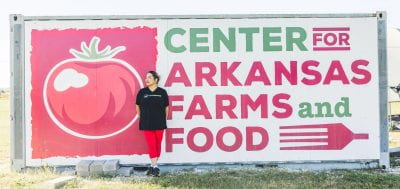
According to the International Diabetes Foundation, diabetes and other related health problems in the Marshall Islands have been linked to nuclear testing conducted there by the United States between 1946 and 1958. Nuclear waste contaminated the soil and forced the Marshallese population to begin relying on imported, processed foods rather than the fresh, homegrown foods they were accustomed to.
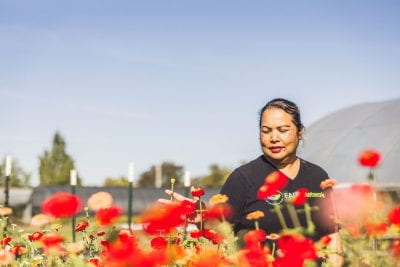 Lucy, a Springdale resident, is on a mission to combat these alarming statistics through nutrition and farming. Rather than selling her harvest, Lucy works with Grace New Beginning Church and donates it to her local Marshallese community. She also shares pre-diabetic information, cooking tips, and farming knowledge. The farming tips are helpful since the RMI growing environment is very different from Arkansas. This presents a challenge for those trying to grow their native crops here and prepare familiar dishes after relocating.
Lucy, a Springdale resident, is on a mission to combat these alarming statistics through nutrition and farming. Rather than selling her harvest, Lucy works with Grace New Beginning Church and donates it to her local Marshallese community. She also shares pre-diabetic information, cooking tips, and farming knowledge. The farming tips are helpful since the RMI growing environment is very different from Arkansas. This presents a challenge for those trying to grow their native crops here and prepare familiar dishes after relocating.
Lucy has even more farming knowledge to share after completing a CAFF farm apprenticeship. She began her apprenticeship at Samaritan Farm in Rogers and completed it at the CAFF Farm in Fayetteville. “I learned a lot from both experiences,” she says “It’s nice to work on different farms and learn different methods. I’ve worked with the best people during my apprenticeships. They were willing to help me throughout my time at both CAFF and Samaritan.”
 Her first farm experience was volunteering at the community garden in Springdale. She farmed there for two years. Then she received a farm incubator plot at Cobblestone Farm in Fayetteville, which she farmed for a year. Next was an acre plot donated by Dr. Carol Elkins.
Her first farm experience was volunteering at the community garden in Springdale. She farmed there for two years. Then she received a farm incubator plot at Cobblestone Farm in Fayetteville, which she farmed for a year. Next was an acre plot donated by Dr. Carol Elkins.
No matter the location, Lucy always farms with a singular motivation and mission. It’s to provide healthy free food to her community while providing information about the importance of nutrition to prevent diabetes. She never sells her harvest and only gives it away. Volunteers who help at her farm learn farming methods and receive a food share.
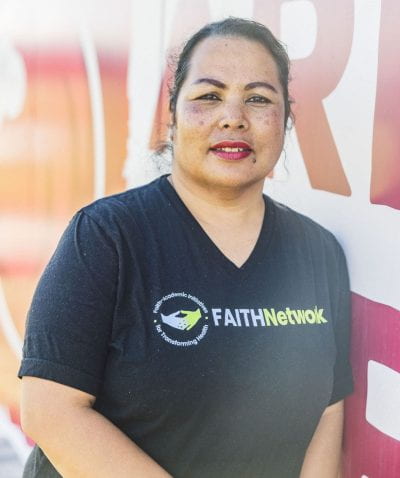 Lucy says her apprenticeship experience will increase her production. “The Beginning Farmer Classes included with the CAFF Apprenticeship Program are very helpful. I learned how to plan my crops more efficiently and use technology to facilitate that,”, she says. This was important to her specific goals coming into the program, which included creating a crop plan, getting vendor contacts, and creating a business plan. “As a 501C3 that doesn’t farm for profit, I still need a business plan. It’s important to know how the funding is spent and make the most of it with an efficient crop plan. I wanted to learn that, and I did.” Lucy also checked off some other skill boxes, such as learning to operate a tractor, set up irrigation, and use a cultivator. She learned about food safety and processing the harvest. “The CAFF program teaches you all the basics from planting to selling. It’s excellent for someone like me or those who want to sell at a local market. I encourage anyone interested in that to apply for one of the CAFF programs.”
Lucy says her apprenticeship experience will increase her production. “The Beginning Farmer Classes included with the CAFF Apprenticeship Program are very helpful. I learned how to plan my crops more efficiently and use technology to facilitate that,”, she says. This was important to her specific goals coming into the program, which included creating a crop plan, getting vendor contacts, and creating a business plan. “As a 501C3 that doesn’t farm for profit, I still need a business plan. It’s important to know how the funding is spent and make the most of it with an efficient crop plan. I wanted to learn that, and I did.” Lucy also checked off some other skill boxes, such as learning to operate a tractor, set up irrigation, and use a cultivator. She learned about food safety and processing the harvest. “The CAFF program teaches you all the basics from planting to selling. It’s excellent for someone like me or those who want to sell at a local market. I encourage anyone interested in that to apply for one of the CAFF programs.”
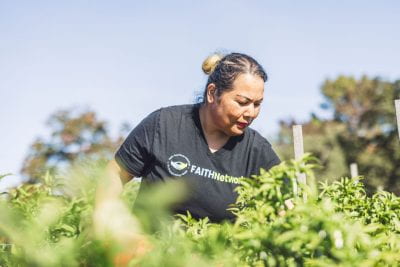 In January, Lucy will begin a new farming chapter. She has acquired a three-year lease for farmland in Rogers. She can now carry on with her work and mission in a longer-term location. “This will allow me to develop the soil, and that’s important,” she says. She can pass on that knowledge to her volunteers as well. “People are always welcome to come and learn on my farm.” In addition to sharing in the harvest, the volunteers receive healthy, diabetic-friendly recipes for cooking what’s grown.
In January, Lucy will begin a new farming chapter. She has acquired a three-year lease for farmland in Rogers. She can now carry on with her work and mission in a longer-term location. “This will allow me to develop the soil, and that’s important,” she says. She can pass on that knowledge to her volunteers as well. “People are always welcome to come and learn on my farm.” In addition to sharing in the harvest, the volunteers receive healthy, diabetic-friendly recipes for cooking what’s grown.
Learn more about Lucy’s mission or volunteer by contacting Grace New Beginning Church. Apply for a CAFF Apprenticeship at UAFarmApprentice.org
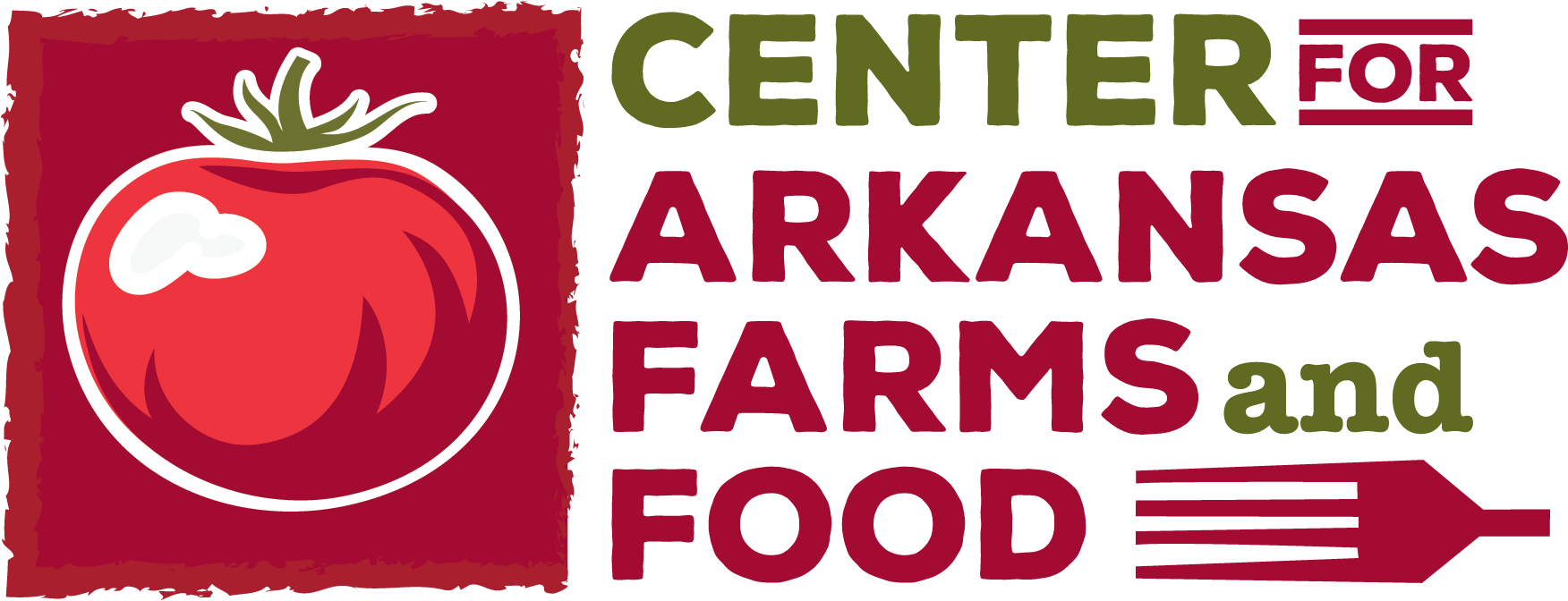
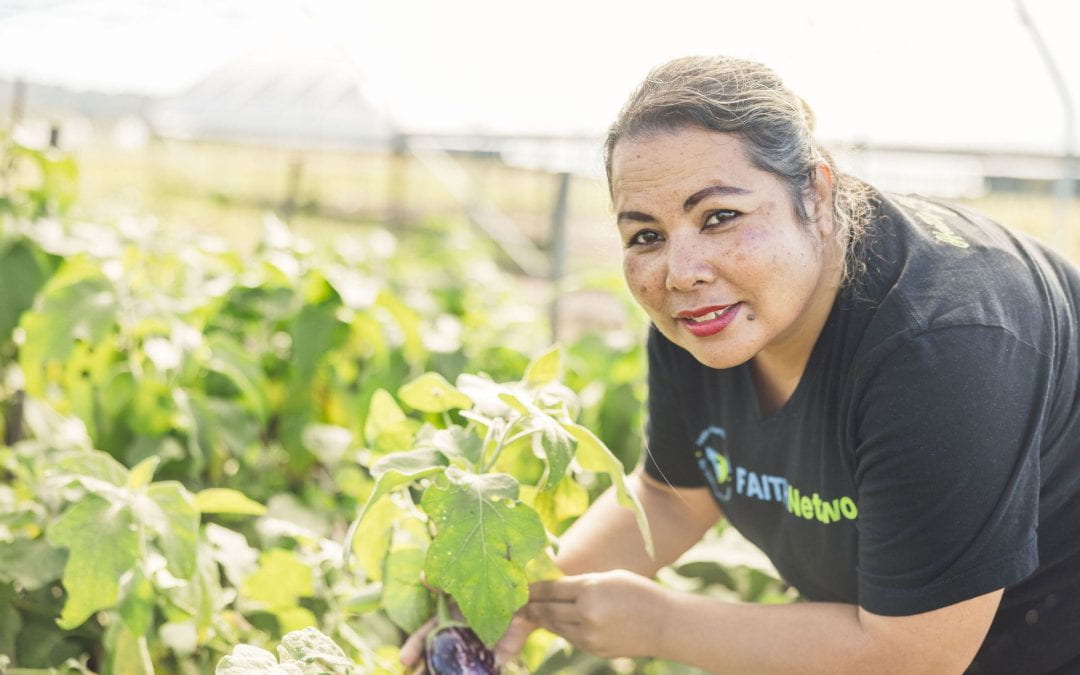
Recent Comments